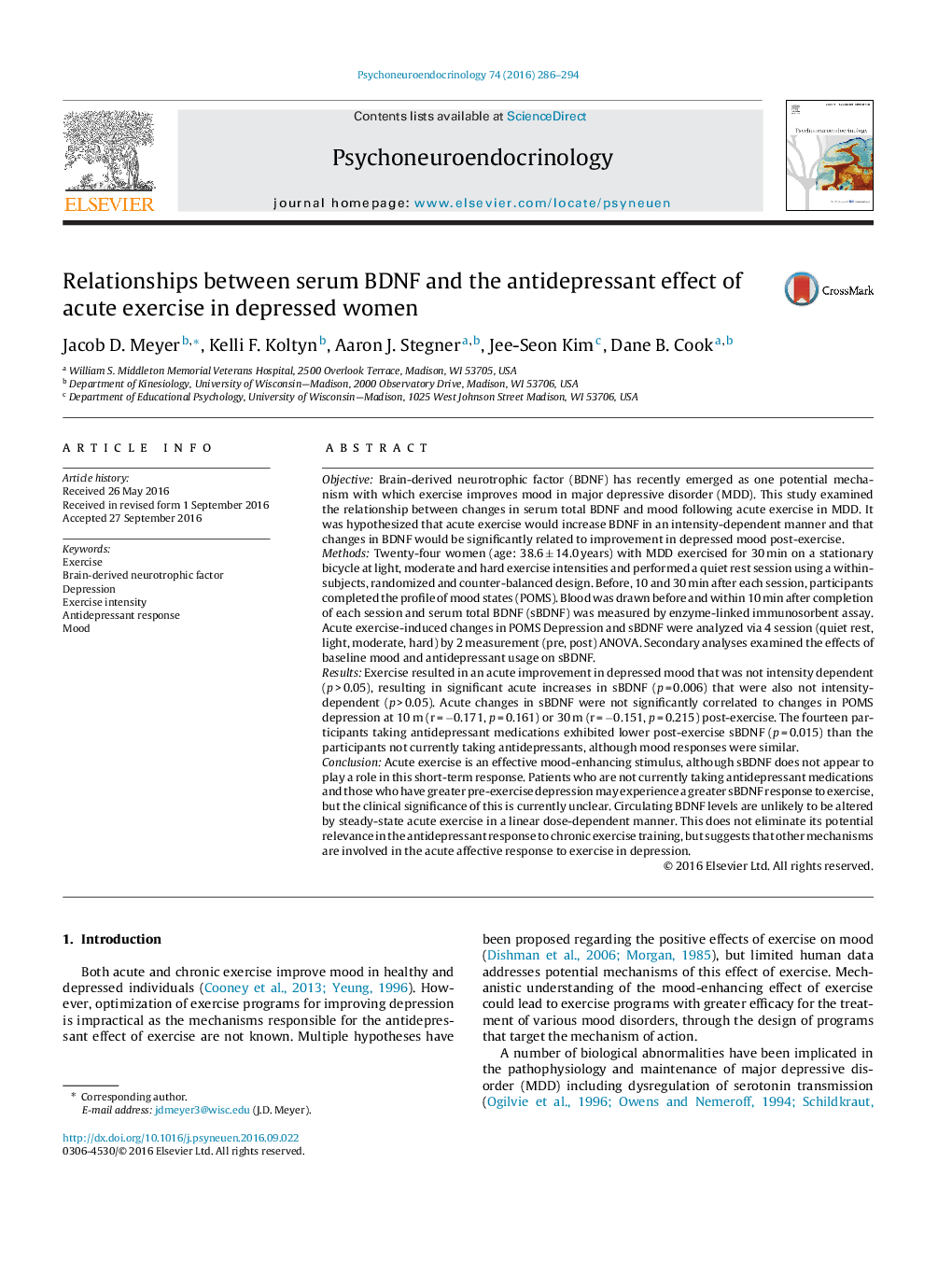| Article ID | Journal | Published Year | Pages | File Type |
|---|---|---|---|---|
| 4934658 | Psychoneuroendocrinology | 2016 | 9 Pages |
Abstract
Acute exercise is an effective mood-enhancing stimulus, although sBDNF does not appear to play a role in this short-term response. Patients who are not currently taking antidepressant medications and those who have greater pre-exercise depression may experience a greater sBDNF response to exercise, but the clinical significance of this is currently unclear. Circulating BDNF levels are unlikely to be altered by steady-state acute exercise in a linear dose-dependent manner. This does not eliminate its potential relevance in the antidepressant response to chronic exercise training, but suggests that other mechanisms are involved in the acute affective response to exercise in depression.
Keywords
Related Topics
Life Sciences
Biochemistry, Genetics and Molecular Biology
Endocrinology
Authors
Jacob D. Meyer, Kelli F. Koltyn, Aaron J. Stegner, Jee-Seon Kim, Dane B. Cook,
